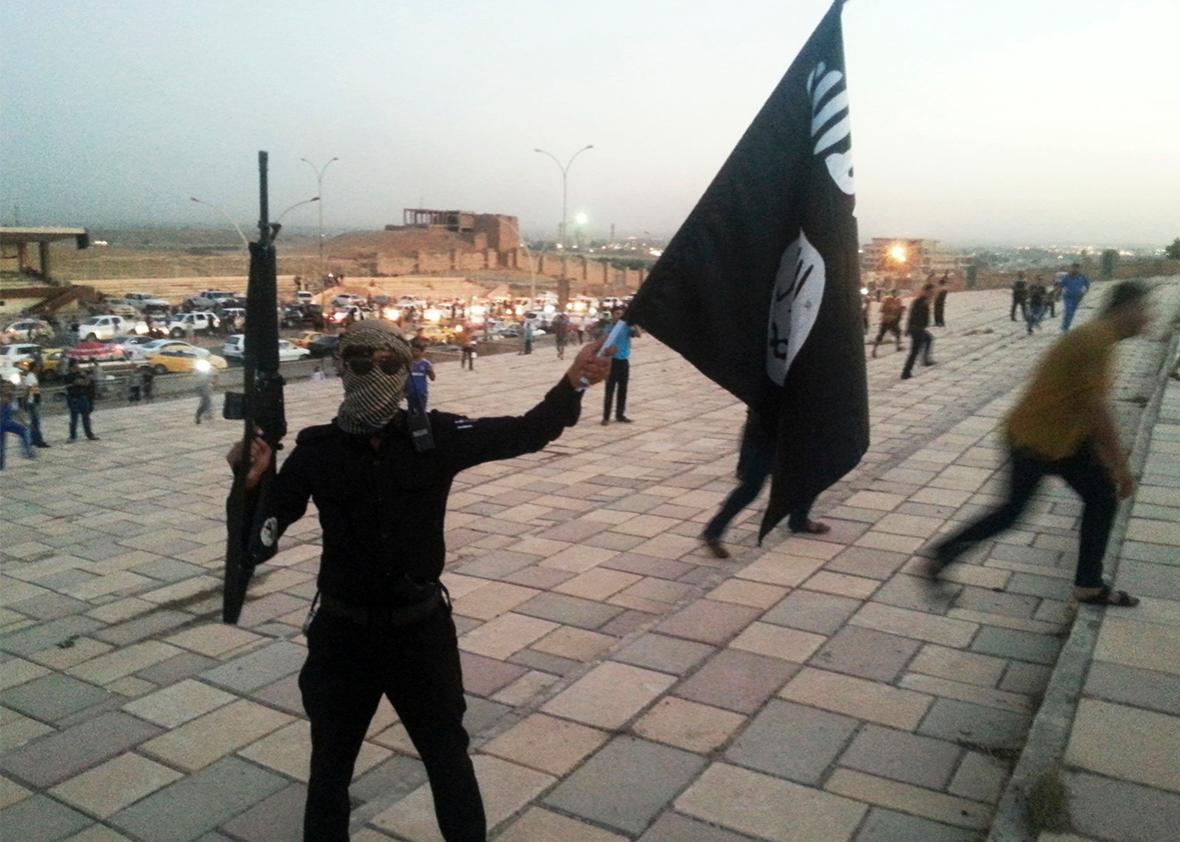There has been widespread international condemnation of Donald Trump’s executive order to halt the intake of refugees and ban people from seven Muslim-majority countries. The governments of Iraq and Iran, two of the countries whose citizens are affected by the ban, are mulling retaliatory measures targeting U.S. travelers. French President François Hollande accused Trump of “encouraging extremism” and urged other European countries to stand up to him. German Chancellor Angela Merkel reportedly explained U.S. obligations under the Refugee Convention to Trump when they spoke on the phone on Saturday. But the list of governments that didn’t take the opportunity to criticize Trump may actually be more interesting.
Theresa May, who met with Trump in Washington last week, is facing criticism in Parliament for failing to condemn the ban. (Perhaps because, as I wrote during her visit, May seems unlikely to push Trump too hard on anything as long as the British are still seeking a post-Brexit trade deal with the United States.) Parliament is currently holding an emergency debate to discuss the ban and how the British government should respond.
Kremlin spokesman Dmitry Peskov said it was “not our business” to question Trump’s order, according to the Russian media. (President Vladimir Putin spoke with Trump on Saturday amid controversy over Russia’s alleged support for Trump during the U.S. presidential election and speculation that the new U.S. administration may lift sanctions on Russia, but as far as we know, the ban didn’t come up in that conversation.)
There’s been no response so far from Indian President Narendra Modi, a Hindu nationalist leader who has a contentious relationship with his country’s Muslim population, the world’s third largest. Modi was himself barred from entering the U.S. for several years due to his alleged role in anti-Muslim violence in Gujarat in 2002. Trump praised Modi repeatedly during the campaign and invited him to the U.S. when the two spoke by phone last week.
Israeli leaders have also declined to comment on the ban, though the government has reportedly sought clarification on how it will impact Jews born in the countries listed. Prime Minister Benjamin Netanyahu did take the opportunity to praise Trump for another of his signature initiatives last week:
As the New York Times notes, some Arab governments have also been treading lightly, notably Saudi Arabia and Egypt, neither of which have publicly commented and neither of which are included in the immigration ban. (Trump has referred repeatedly to the 9/11 attacks in justifying the ban, even though 15 of the 9/11 hijackers came from nonbanned Saudi Arabia.) Despite the Islamophobia of Trump’s campaign and his relatively pro-Assad position in Syria, a number of autocratic Sunni governments, including Egypt and Saudi Arabia, have been pretty optimistic about Trump, hoping he’ll take a hard line on Iran and have little interest in promoting democracy abroad (or anywhere).
All of these governments may be keeping mum about the ban, but there are a few groups in the Muslim world who are actually actively happy about it: the very jihadi groups it’s ostensibly targeting. ISIS and al-Qaida have frequently used their propaganda to attack refugees fleeing to the West as traitors and argued that they won’t be allowed to practice Islam here. The Washington Post reports that pro-ISIS commenters online have been calling Trump’s move a “blessed ban” and arguing that it “clearly revealed the truth and harsh reality behind the American government’s hatred toward Muslims.”
